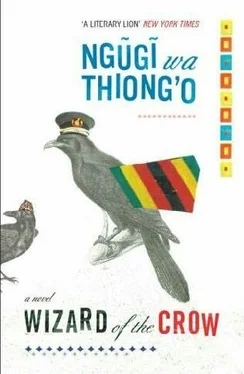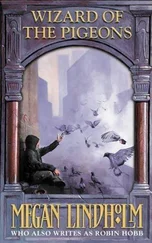Fhe party not only would fight for improved working conditions for black Aburlrians in the army and for the promotion of blacks to higher ranks, but would also champion the causes of all the smaller pastoral communities and fight for their right to wear traditional clothes and carry cultural weapons like bows and arrows, spears, and knock-berry clubs. They would sooner do without schools or even adequate grazing grounds than give up these cultural symbols so crucial to the defense of their traditions now threatened by larger ethnic communities, mostly supported by so-called progressive parties who had joined hands with terrorists to demand freedom now. Freedom now? All that these progressives wanted was for the whites to leave so that they would appropriate the grazing fields and watering holes of small communities and abolish their culture. Whereas those other parties wanted land and freedom, the Ruler-to-be’s party wanted freedom with honor and scoffed at the idea of a timetable for freedom. The mother of the colonial state was happy. The white settlers were happy. The blacks in the colonial army were jubilant: they now had a champion and need not fear about their place in the new black order.
When independence was negotiated, the white settlers rallied behind the man and his party with secret money and diplomacy, and urged him to demand that as the representative of smaller communities he must be the second only to the first president, who was from the bigger communities. Failing that, the smaller communities should demand self-rule and secede if necessary. Most important, he and his party would have nothing to do with the armed insurgents.
The former colonial army, now renamed the national army even before negotiations had begun, also made its preferences known. The nationalist insurgents were shut out of direct negotiations in Europe. All else followed a preordained logic. Why not talks between the “main” parties to avoid future ethnic strife? The result was predictable. The agreement to merge all the nationalist parties into a United Party to ensure harmony between the major and minor ethnic groups, with the future Ruler now as number two to the First Ruler, a man advanced in years, was hailed as a triumph of moderation by all sides, and mostly by the mother of the erstwhile colonial state.
That is one version among many, but all agree on one thing: the Ruler’s rise to power had something to do with his alliance with the colonial state and the white forces behind it. They also agree that he had come to value self-abnegation as the way of dealing with anybody with authority above him.
In his dealings with the First Ruler of the Free Republic of Aburlria, he humbled himself in every possible way, taking all shit from his new boss, marking time as Vice Ruler but biding his time. His capacity for absorbing every kind of abuse became legendary, and nobody who saw him kneel, crawl, or cringe before the boss could see the future greatness of the man.
But the more he humbled himself to his superiors, the more he expected the same from his underlings to assuage a deep-seated self-doubt. This need for assurance often resulted in acts of implacable brutality against the weak. No sooner was he fully in charge after the mysterious death of the First Ruler than he asked for the list of all condemned prisoners awaiting clemency and signed the warrant for their immediate execution. When he saw that his signature on paper or a word from his mouth could bring about the immediate cessation of a life, he there and then truly believed in his omnipotence. He was now sovereign.
What even those closest to him did not then realize was that the worst had yet to come. His lust for blood revealed itself when a breakaway group from the United Party formed the Aburlrian Socialist Party, attracting in no time a grassroots following across the ethnic divide. At the time, the cold war was starting. His friends in the West demanded that he do something about this. He immediately declared Aburlria a one-party state. The United Party changed its name to the
Ruler’s Party and became the only legal political authority The leaders of the socialist splinter group, having announced that they would take up arms and seek assistance from Cuba and Russia, went underground. Some say that the socialists were careless and irresponsible in what they did, ill prepared for consequences. Others have since claimed with documentation that the call to arms was the Ruler’s fabrication. Whatever the case, his friends in the West needed him to assume the mantle of the leader of Africa and the Third World, for Aburlria was of strategic importance to the West’s containment of Soviet global domination. The Ruler accused the Socialist party of forming one link in the chain of the Soviet ambitions. Aburlria did not fight Western colonialism in order to end up under Eastern Communist colonialism, he declaimed, the first time he had used the phrase “fight Western colonialism” in a positive context.
It is said that in only a month he mowed down a million Aburlrian Communists, rendering the Ruler the African leader most respected by the West and landing him numerous state visits with kings, queens, and presidents receiving him in their palaces at lavish dinner parties. The Western media was bountiful in its praises: a bulwark against world communism, some called him. A leader not afraid to lead, others said. At long last, AN AFRICAN STATESMAN OF WORLD STATURE, screamed headlines. Countless were the many pictures of him shaking hands with the most powerful of European and American statesmen.
The Ruler broke the back of organized resistance, and it took some years for opposition to regroup and retrieve fragments of memory and piece them together into a whole. Even then this opposition largely existed underground or in exile, as was the case of Luminous Karamu-Mbu-yaTtmka and Yunity Immaculate Mgeuzi-Rila-Shaka in the days when they used to toy with revolutionary ideas. Above-ground, the Ruler proved adept at stifling all other nascent opposition through the carrot and the stick. He gave the carrot to the elite of the various ethnic communities and the stick to all signs of defiance. Rut sweetness was reserved for the armed forces, who never forgot his dramatic resignation as Military Information Officer from the army they had served under during colonialism. Our man in the State House, some of the generals called him, and the Ruler returned the favor by frequently reminding the nation that the only votes that mattered were those cast for him by the armed forces.
He was baffled by anyone not motivated by greed. He could never understand the type who talked of collective salvation instead of personal survival. How was one supposed to deal with these recalcitrants? A fisherman puts a worm at the end of the line, but if the fish ignores it, how is the fisherman to catch the fish?
That is why he could not understand what drove the women to do what they had done. If they had come to him for money, he would gladly have given them thousands of Burls. If they had come to him to beg for a piece of land, he would have heard their entreaty. If they had come to him to complain about their men spending money and time in bars, he would have given them sympathetic hearing and addressed the nation on the matter; but they had asked for no favors. He had not denied them anything. Why then their need to shame the nation?
Before the event, the Buler would have sworn that he thoroughly understood women through and through. How many men, particularly his ministers, had he humiliated by ordering them to send him their wives, daughters, or girlfriends? At first he assumed that the women would offer at least some token of resistance to his advances, and he was always surprised by how quickly they yielded to his amorous gropings as an act of personal honor and recognition! Some would become indignant at having to make the bed of the Buler, but as soon as their husbands turned their backs, they would be coquettish and genuinely flattered to be of service to power!
Читать дальше












